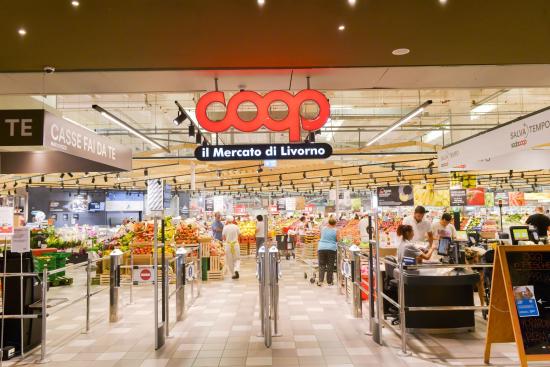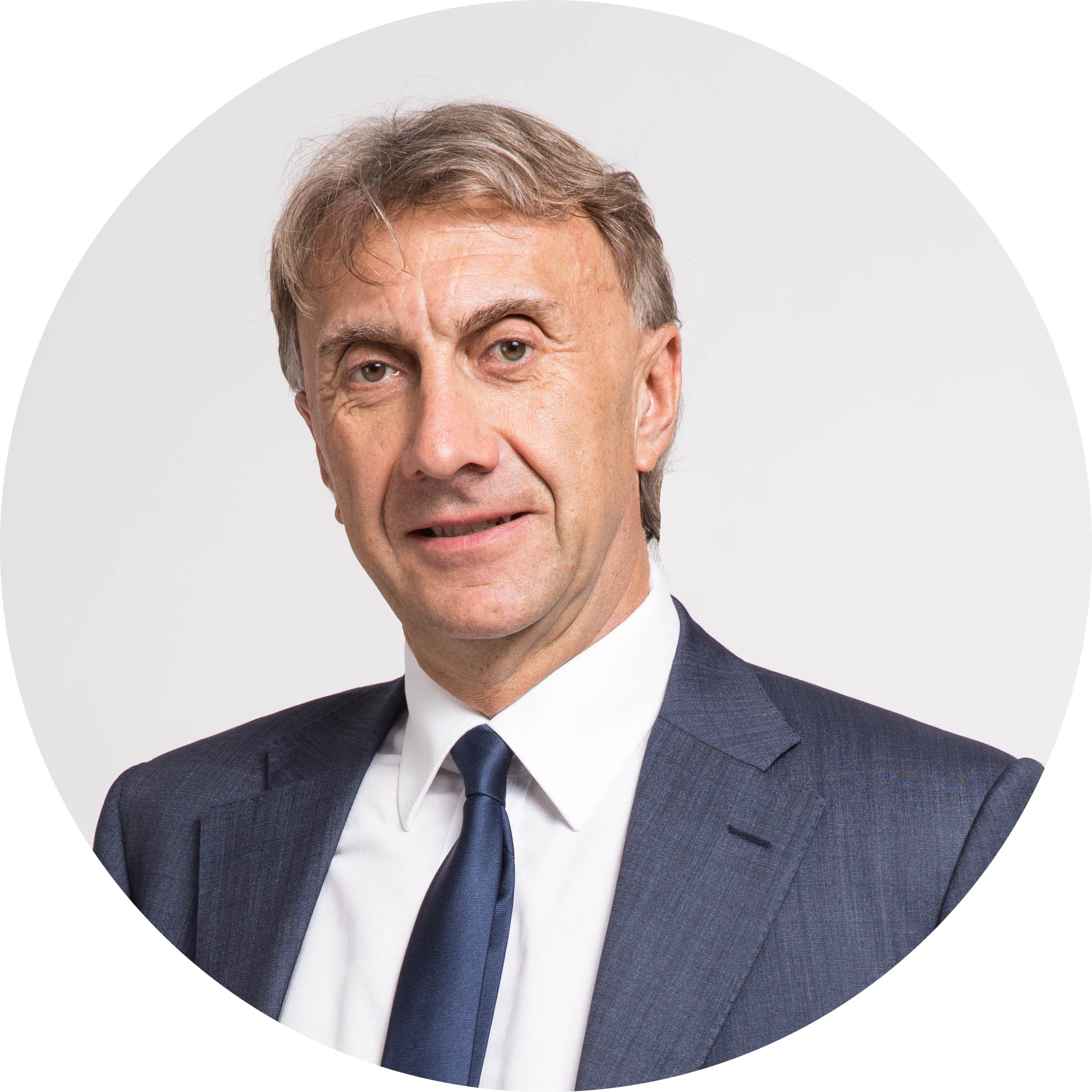Six assets sold to ICG: a strategic transaction, with important benefits

On 21 October IGD announced that it had reached an agreement for the sale to ICG – Intermediate Capital Management of a portfolio of assets comprising five hypermarkets and a supermarket. The transaction value is close to the book value at 30 June 2021 or €140 million[1], which makes it one of the most significant asset management transactions included in the 2019-2021 Business Plan with important benefits for IGD’s financial profile.
Let’s speak with IGD’s Chief Executive Officer, Claudio Albertini, to learn more about how important this agreement is, why it was made and the impact it will have in the short/medium term.
Why is this transaction so strategic?
I would like to stress one thing: the need for this transaction was born and was carried out with determination over the last few months primarily for financial reasons. Our business model does not, in fact, call for the systematic disposal of portfolio assets, similar to other REITs or SIIQs. Our underlying operating philosophy is to keep portfolio assets for a long time, making investments to ensure that the quality and appeal remain high in order to generate profitable and sustainable rental income.
In the 2019-2021 Business Plan we had already indicated our intention to rationalize the portfolio by selling a few non-strategic assets for a total of between €150 and €200 million. The Plan also indicated that we would have used the relative proceeds, first and foremost, to reduce debt and financial leverage and, to a lesser degree, for asset rotation. As a result of the pandemic, however, we were forced to recognize impairment of approximately €150 million so today the proceeds we will receive for the sale will be used entirely to reduce debt and the Loan-to-Value.
What are the specific goals that this sale allows you to achieve?
The agreement we signed with ICG – which should close by the end of November, once the loan for at least half the assets’ value is obtained – will allow us to sell the portfolio’s six assets at close to the book value indicated by the independent appraisers at 30 June 2021, namely for €140 million. We will receive net proceeds of €115 million[2]. Different goals are being achieved as a result of this transaction. Firstly, we will improve our LTV: the 48.3% that we recorded at 30 September 2021 will be lowered to 45.6% pro-forma after the sale. Thanks to the cash-in of around €115 million, we will then have sufficient liquidity to basically cover almost all the 2022 maturities. This means that we will be able to calmly begin working on refinancing the debt maturing in 2023 and 2024; we will immediately start to test the waters and decide what would be the best time next year to go to market with new bond issues. The disposal, lastly, helps us to achieve a third goal, namely to improve our risk profile so that we can continue to count on an investment grade rating.
How do the rating agencies currently view use?
At the end of September 2021 Fitch Ratings confirmed the Investment Grade rating of BBB- and changed the outlook from Negative to Stable. The improved outlook reflects the greater visibility for rental income, supported by the gradual increase in footfalls and the sales of the tenants in our shopping centers seen in the last few months. At the moment S&P Global Ratings has issued at BB+ rating with a Negative Outlook. Considering, however, that on 22 October S&P confirmed the BBB rating for Italy and changed the outlook from Stable to Positive, in light of the Draghi government’s commitment to the reforms needed to fuel growth, we can hope that S&P will take another look at our debt’s rating and outlook in the near future.
What other impact could this transaction have?
Based on the disposal’s value of €140 million, reserves of roughly €32 million would be released, 50% of which would be used to determine the mandatory dividend to be distributed within the next two years. An important impact, therefore, in terms shareholder remuneration, as well.
Why did you decide that ICG was the right counterpart for this transaction?
When we began the process, we received an impressive 40 expressions of interest from very different counterparties and decided to focus on only two of them. With ICG we focused on the high standing of the counterpart, which also represented an important premise for the success of the agreement.
Who is ICG?
Intermediate Capital Group is a global asset management company, listed on the London Stock Exchange, with assets under management of $ 65.2 billion as at 30 June 2021.
ICG, or Intermediate Capital Group, is an Alternative Asset Manager active on three continents – America, Europa e Asia – as it is present in 15 countries. Investing in real assets is only one of the Group’s areas of operation which also include Structured and Private Equity, Private Debt, as well as credit market activities. This is a company with considerable assets under management which, at the end of June 2021, amounted to USD 65.2 billion. The size is also reflected in its market capitalization which reached £6.4 billion based on the price of the shares listed on the London Stock Exchange at the end of October 2021. This specific transaction was entered into with ICG’s Sale & Leaseback Fund.
Was it easy to help this counterpart understand the value of the portfolio that you put up for sale?
By itself the value of the transaction is quickly understood: we are dealing with hypermarkets, so the rental income streams are very linear. Each asset is invoiced quarterly over the course of each year. The five hypermarkets and the supermarket that comprise the portfolio included in the agreement, which are all located in central – northern Italy, generate yearly net rental income of €7.7 million and have long-term leases. This is ICG’s first deal in Italy, which reflects the desire to get involved in the sector during a specific phase, impacted considerably by the measures implemented to contain the pandemic. The weight that the credibility of Premier Draghi had in convincing ICG that the country will make the reforms needed to trigger a solid and healthy recovery in consumption was not negligible.
What form exactly will the disposal take?
We will transfer the properties to a closed end real estate investment fund (an Italian REIF) formed by us, together with ICG, and managed by Savills Investment Management SGR S.p.A., of which ICG will hold 60% of the quotas (Class A, with a preferential yield) and IGD the remaining 40% (Class B, with a subordinated yield)[3]. The goal is to further enhance the portfolio over time and sell it on the market at the best conditions possible. Net of the amount reinvested in the fund, therefore, we will receive the roughly €115 million referred to above at the time of the closing which is expected to take place by the end of November[4]. That is not all, IGD will continue to be responsible for the property management of the six assets.
We said that the driver of the transaction was essentially financial. What other repercussions did you take into consideration?
The decreased weight of the hypermarket/supermarket category in our real estate portfolio, as a whole, will have a significant impact. If we look at the market value at 30 June 2021, based on the latest independent appraisals available, subsequent to the transaction the weight of this category will go from 24.8% to 19.8% pro-forma. Similarly, the percentage of revenues from Coops will drop, based on the figure at 30 September 2021, from 25.8% to 21.3% pro-forma. We should also bear in mind that all the properties included in this portfolio are stand alone, meaning they are not connected to our freehold malls. We, therefore, made a choice that was entirely consistent with our strategy to focus on full ownership of the shopping center, namely mall and hypermarket, in order to have greater flexibility and speed when responding to market changes and tenants’ needs.
One last takeaway from this disposal?
It’s important to point out that ICG used the independent appraisals presented by us at 30 June to establish the terms of the acquisition. Now, taking into account that currently IGD’s stock is trading at a discount of more than 60% with respect to its NAV, we can conclude that having sold a portion of the portfolio at NAV is, on the one hand, an irrefutable success and, on the other, indicates that our stock still has ample upside.





